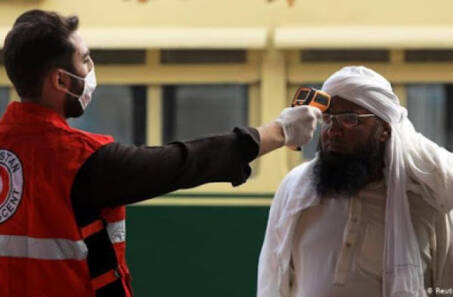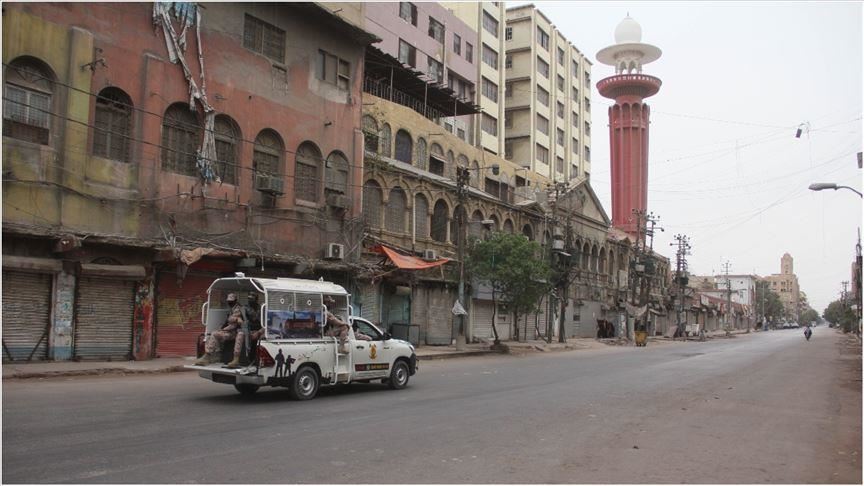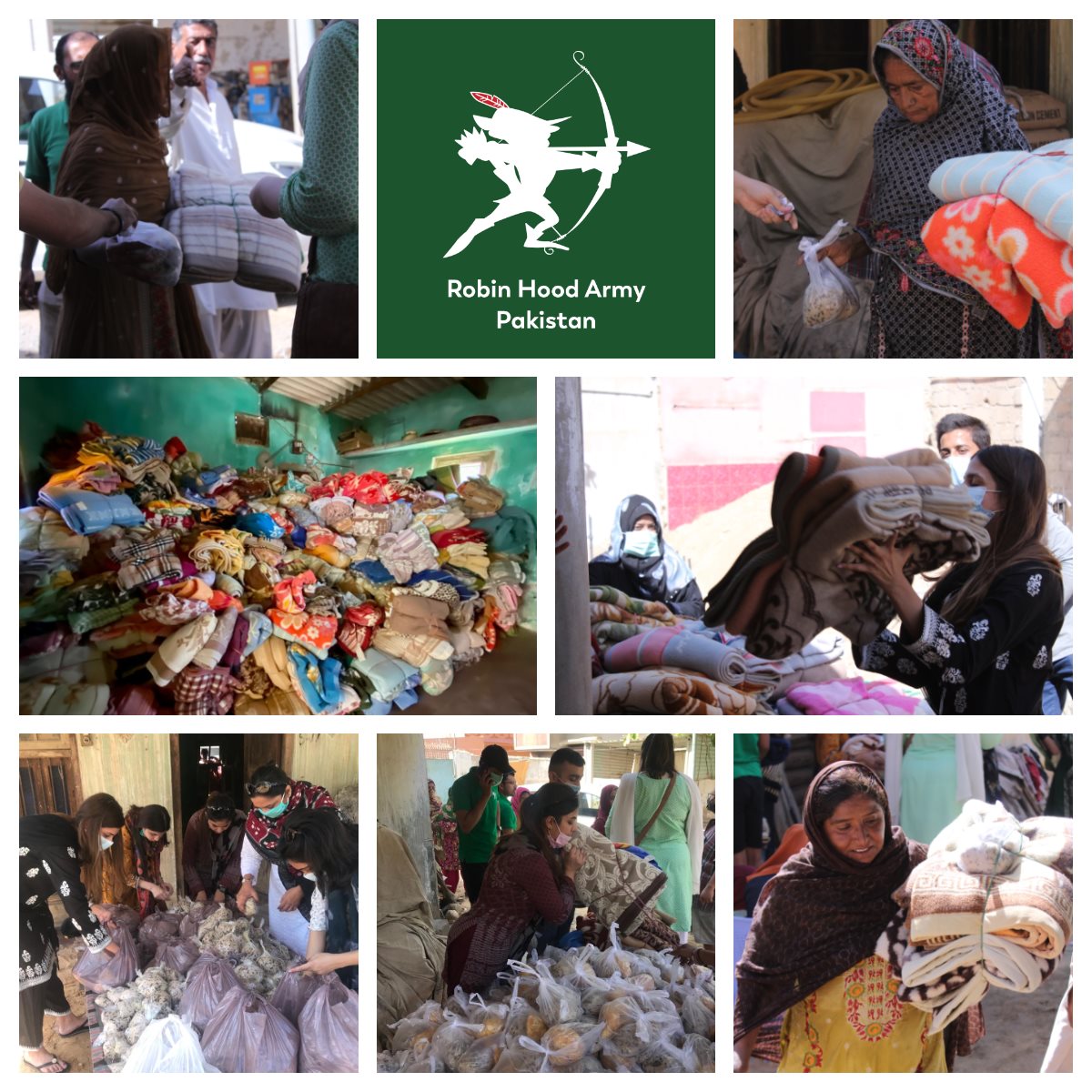Disclaimer*: The articles shared under 'Your Voice' section are sent to us by contributors and we neither confirm nor deny the authenticity of any facts stated below. Parhlo will not be liable for any false, inaccurate, inappropriate or incomplete information presented on the website. Read our disclaimer.
This article was originally submitted by Dr Sara Sajjad
In late 2019 the world had to face a virus; the very first of its kind. It rapidly spread across different continents and led to a pandemic which had global socio-economic repercussions. The Covid- 19 pandemic halted economic progress and development, and ceased tourism.
It took a toll on health workers as the influx of new cases emerged on daily basis and the health system was disrupted and moulded to cater to the needs of Covid positive patients. Suffice to say, the pandemic had an unprecedented cultural impact. All activities pertaining to arts and culture were either shut down or aired on digital platforms. The world and our reality as we know had alternated. Although, currently the spike in corona positive cases has abated and life has returned to ‘normal’, in the aftermath of the pandemic there has been a prevalent shuffling in the way economic, health, tourism and cultural sectors once functioned. In retrospect, we have integrated these changes into our lives and still anticipate further change.
The economic facet of the pandemic has been mostly dismal.



It has been predicted that the recession brought about by the pandemic has been worse than the recession of 2008. There has been a projected global loss of 1 trillion dollars amongst declining GDP in most countries and rising unemployment. Countries already under the distress of economic debt have suffered the most as total debt has risen with surging aid needed to control the spread of the pandemic. The IMF and the World Bank have accounted to have given $50 billion and $ 14 billion respectively for immediate support and relief to countries most affected by the lethal virus.
The crippling economic system calls for change and new socio-economic policies and an increase in investments in developmental goals and projects. In these times, a rampant increase in the digital economy has become mandatory as the electronic commerce of goods and services has risen. Most people now rely on digital platforms for shopping, virtual meeting and educational purposes and many work from home to make ends meet. With augmented digitization internet accessibility, online connectivity and technical skills have become essential.
Earlier this year, most tourism activities came to a standstill. Although, now travel restrictions have eased and activities have resumed, the tourism industry endures a new set of challenges. A decreased demand in travel and social distancing has reshaped the outlook of different modes of travel. The cost of travelling has increased by two folds as new restrictions and rules prevail.
Each country has outlaid its own set of rules.



Where some have stringent policies and strict entry bans, others have allowed entry within a country only after individuals have been quarantined for the required amount of time. These changes have inculcated into the loss of billions of dollars in international tourism receipts and have had a deleterious impact on the overall account balance and trade in several countries.
The health industry too had to reform itself to meet the needs of thousands of new Covid positive cases. Services were disrupted and the staff was reassigned to aid those blighted by the virus. As most efforts turned towards the pandemic, there was an alarming shortage of medication for diseases such as hypertension, diabetes and cardiovascular disease. Most of these problems have now resolved. However, the consequences still ensue. The postponement of screening projects has set back health plans from their original dates. With the reallocation of staff, there has been a blatant decrease in the number of surgeries in the past year.
Furthermore, burn out rate is reported to have been soaring amongst health staff, leading to a physician shortage. With the diminished staff at the bay of patients, a new crisis has emerged. Interestingly, social distancing during the pandemic has paved the way to a new digitized form of consultation, namely telemedicine. A variable number of physicians are now resorting to the novel mode of consultation to deal with the rising flow of patients. As increased anxiety, stress and depression dispel through the health sector, it continues to function and adapt to any apparent crisis.
Like most other activities, cultural activities and events remained at respite throughout the year.



Where concerts, exhibitions and festival were once common, seldom did any activity take place during the year and life seemed to be confined indoors. Many cultural institutions and events have still closed down until further notice and we seem to salvage of whatever cultural activities we are offered in the aftermath of the pandemic.
In these difficult times, digital platforms have proved to be a viable substitute as many exhibitions and events are now being shown through a virtual interface. Since digital platforms seem to facilitate most interaction, it has become toilsome for most artists to earn a living. Additionally, cultural heritage sites are also under the threat of being razed since looting and poaching of such sites has surfaced during the pandemic. Effective preventative measures are required to restore the loss and new policies are to be reinstated to deliver the current situation.
In the aftermath, looking back and reflecting upon the pandemic we can see that with every endeavour and challenge, humanity continued to prevail.



As life’s predicaments evolved, we became ever so wiser and insightful. The pandemic paved way for a collective conscience, where the world was brought together in their tireless efforts to withstand and bear a peril unlike another. Perhaps what the pandemic taught us was that, above all else, to practice kindness and gratitude in times of need.
We can find solace in the fact that with every rising difficulty, human beings will always come together and find a way to exist. Humanity will always outweigh adversity and our conscience will continue to drive our resolve. We shall continue to survive.















